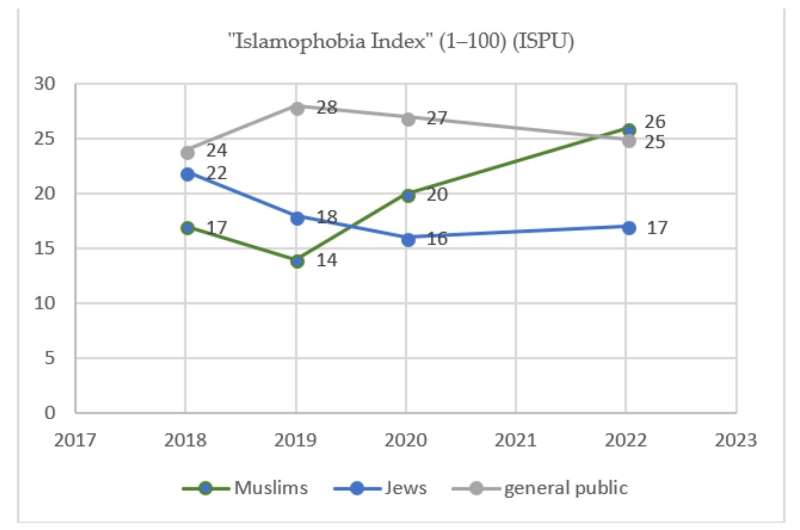This article has been reviewed according to Science X's editorial process and policies. Editors have highlighted the following attributes while ensuring the content's credibility:
fact-checked
trusted source
proofread
How Muslims and Jews see each other in Western countries

Jewish-Muslim relations have been complicated for centuries, but assumptions that all Jews and Muslims are eternal enemies are proven wrong by a comprehensive survey review conducted by a researcher in Indiana University's Institute for the Study of Contemporary Antisemitism.
Gunther Jikeli, the Erna B. Rosenfeld Professor in the IU Bloomington College of Arts and Sciences' Borns Jewish Studies Program, reviewed 46 surveys from more than a dozen predominantly Christian countries that included nearly 27,000 Muslims and more than 52,000 Jews. The findings are published in the journal Religions. Jikeli's is the first comprehensive review of surveys on how Muslims and Jews see each other in Western countries.
"These surveys provide a small window into the very complex relations and perceptions Jews and Muslims have of each other, but the trends that emerge can be helpful in trying to promote understanding and tolerance between the religious groups," Jikeli said.
The survey review revealed that Jews are significantly more likely to acknowledge discrimination against Muslims than the general public, and they are also unlikely to make stereotypical generalizations of all Muslims. The findings show that a majority of Jews in the U.S. believe Islamic extremism represents an antisemitic threat in the U.S., although more Jews believe the extreme political right poses a threat.
Other surveys focus on how Muslims view Jews. Jikeli's review found that Muslims in Western countries are less likely than the general U.S. population to say Jews face a lot of discrimination. They are also significantly more likely to hold negative views about Jews, although most Muslims in European countries and the U.S. don't exhibit antisemitic attitudes.
The data shows that many Muslims' negative views of Jews aren't based on personal experience, but on prejudice and stereotypes—some of which are rooted in fear. Jikeli said that exploring whether some Muslims feel the very existence of Jews threatens their identity and faith would be worth exploring in future research.
"While this survey review helps us understand general attitudes these religious groups may have toward each other, forming perceptions is highly complex and personal," Jikeli said. "These tendencies do not apply to millions of individuals."
More information: Gunther Jikeli, How Do Muslims and Jews in Christian Countries See Each Other Today? A Survey Review, Religions (2023). DOI: 10.3390/rel14030412
Provided by Indiana University




















